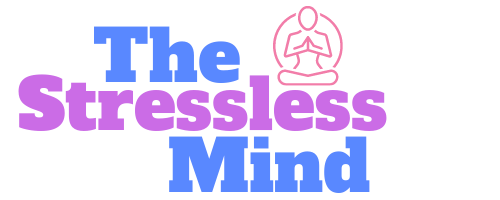Stress and back pain are two common health issues that many people experience at some point in their lives. While they may seem like separate problems, they are often interconnected, with stress being a leading cause of back pain.
In today’s fast-paced world, stress has become a constant companion for many, and back pain is one of the most common complaints heard by doctors. The impact of stress on our physical and mental health cannot be understated, and it can take a toll on our bodies in many ways, including causing or exacerbating back pain.
Below we’ll explore the relationship between stress and back pain, delve into the causes and symptoms of each, and provide tips and strategies for managing and alleviating both.
Whether you suffer from chronic back pain, experience occasional flare-ups, or simply want to learn more about these common ailments, this article will provide valuable insights and information to help you better understand and cope with stress and back pain.
Can Too Much Stress Cause Back Pain?

The short answer is yes, too much stress can cause back pain. When we experience stress, our bodies release a hormone called cortisol, which can cause our muscles to tense up and become more sensitive to pain. This tension can affect the muscles in our back, causing stiffness, soreness, and discomfort.
Additionally, stress can also lead to poor posture, as we may hunch our shoulders or slouch when we’re feeling overwhelmed, which can put additional strain on our back muscles and lead to pain.
Furthermore, stress can also contribute to the development of conditions such as herniated discs, which can cause back pain. Therefore, it’s important to manage stress levels to prevent or alleviate back pain.
What Does Back Pain From Stress Feel Like?
Back pain from stress can feel different for different people. Some people may experience a dull ache or a feeling of tightness in their back muscles, while others may feel a sharp, shooting pain.
The pain may be localized to a specific area of the back or may be more diffuse, spreading across the entire back. In some cases, stress-related back pain may be accompanied by other symptoms, such as headaches, fatigue, or difficulty sleeping.
It’s important to note that stress-related back pain is often exacerbated by physical activity or movements that put strain on the back muscles, such as bending or lifting.
If you suspect that your back pain is related to stress, it’s important to speak with a healthcare professional to rule out any underlying medical conditions and to develop a treatment plan that addresses both the physical and emotional aspects of your symptoms.

Stress Related Back Pain Treatment
Everyone’s body is different and there may be different factors affecting each person differently, so everyone’s treatment for stress related back pain may be different. That being said, here is a general outline for a stress-related back pain treatment plan:
- Identify and manage stressors: The first step in treating stress-related back pain is to identify and manage the sources of stress in your life. This may involve making lifestyle changes, such as adjusting your work schedule or practicing relaxation techniques such as deep breathing exercises, meditation, or yoga. It could even involve making use of our easy to follow, stress relieving program.
- Improve posture: Poor posture can exacerbate back pain, especially if you spend long periods sitting at a desk or in front of a computer. Making simple changes such as adjusting your chair height or using an ergonomic keyboard can help alleviate strain on your back muscles.
- Exercise: Regular exercise can help improve flexibility, strength, and overall physical and mental health. This can include low-impact activities such as swimming, walking, or yoga.
- Physical therapy: If your back pain is severe or chronic, physical therapy may be recommended. A physical therapist can work with you to develop a personalized exercise plan to help alleviate pain and improve strength and mobility.
- Pain management: Over-the-counter pain medications such as ibuprofen or acetaminophen can help alleviate acute back pain. In some cases, stronger prescription pain medications may be recommended and prescribed by your physician.
- Mental health support: Chronic stress and back pain can take a toll on your mental health. It’s important to seek support from a mental health professional if you are struggling to cope with stress or experiencing symptoms of anxiety or depression.
Overall, treating stress-related back pain requires a multifaceted approach that addresses both the physical and emotional aspects of the condition. By working with healthcare professionals and making lifestyle changes, many people are able to manage their symptoms and improve their overall quality of life.

In summary, yes, stress may be the cause of your back pain, stress-related back pain is a common health issue that can significantly impact your physical and mental well-being. Understanding the relationship between stress and back pain is crucial in developing effective treatment plans that address the root causes of the pain.
From identifying and managing stressors to improving posture, exercise, physical therapy, pain management, and seeking mental health support, there are many ways to manage stress-related back pain.
By taking proactive steps to manage stress and adopting healthy lifestyle habits, it is possible to reduce the frequency and severity of back pain, improve physical and mental health, and enjoy a better quality of life.
If you are experiencing stress-related back pain, it’s important to seek the advice of a healthcare professional to develop a personalized treatment plan that addresses your unique needs. With the right approach and support, you can find relief from stress-related back pain and live a happier, healthier life.
PS – If you don’t feel that you can face a medical professional right now (we get it, making and attending appointments can be hard for some people), we’ve heard really good things about using the Ablespine to help with back pain relief in the comfort of your own home.

